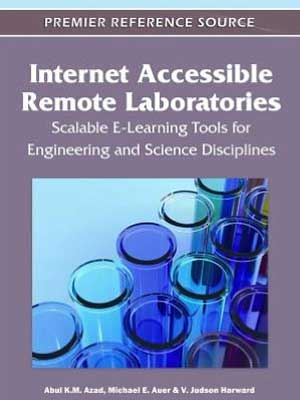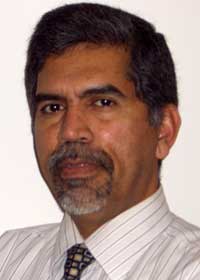Abul Azad, a professor in the NIU Department of Technology, recently published a book titled “Internet Accessible Remote Laboratories: Scalable E-Learning Tools for Engineering and Science Disciplines.”
The book is the result of collaboration between three academics from NIU and MIT, as well as Carinthia University of Applied Sciences in Austria. The book has five sections with a total of 29 chapters from 112 contributors on all continents.
Internet accessible remote laboratories provide a means for getting access for the operation and control of laboratory equipment over the Internet. To get access to such an experiment, one needs a computer with Internet connection and a web browser.
Apart from periodical use, current laboratory equipment lies idle during most of their usable lifetime.
An Internet accessible remote laboratory facility would provide unlimited access to an experiment and maximizing the use of available resources by providing access to the students from same institution as well as other institutions with varied geographical locations.
Azad has been working in the realm of remote access laboratories since 2002 and has received three National Science Foundation (NSF) grants in this area. At some point, he realized that there is no single publication that serves as a reference for the current state of this field of study.
 “With this feeling,” Azad said, “the idea for an book was conceived about five years back. At that point I teamed up with two other experts, Michael Auer (Austria) and Judson Harward (MIT). Starting with the proposal submission for the book, it took us around two-and-a-half years to complete it.”
“With this feeling,” Azad said, “the idea for an book was conceived about five years back. At that point I teamed up with two other experts, Michael Auer (Austria) and Judson Harward (MIT). Starting with the proposal submission for the book, it took us around two-and-a-half years to complete it.”
Azad plans to publish books periodically to provide updated information.
There is still a lively debate over the costs and benefits of remote laboratories, the best practices for their use and the interplay of technology and pedagogy in their design. The articles assembled in this book capture this debate and represent the diversity of current views on remote laboratories even if they do not form a clear consensus.
By pulling together ideas and lessons learned from the worldwide remote engineering community, Azad said he hopes this volume will play a role in shaping the future of online laboratories.
The target audience for the book is primarily researchers, academics, and graduate students.
For students in the College of Engineering & Engineering Technology, the book can be used as a reference. It is meant to benefit students in electrical engineering, computer engineering and computer science.
It also can be used for projects, provide a guideline for CEET faculty and be used by computer science professionals, Azad said.

